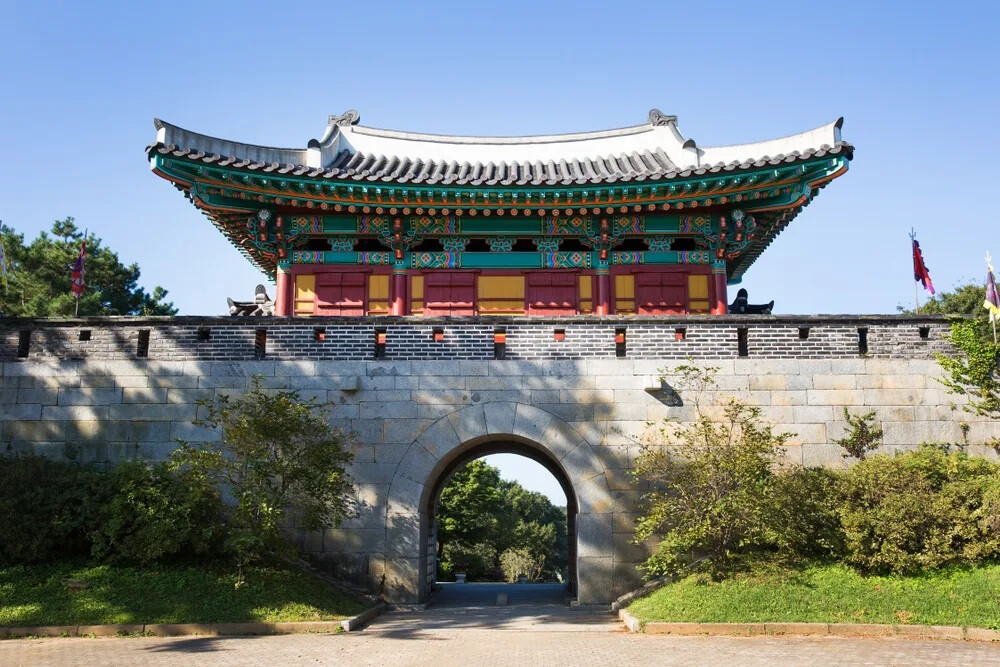
In a proactive move to safeguard its rich historical legacy, Ganghwa County in Incheon, South Korea, has announced its plan to designate all state-designated and city-designated cultural heritage protection zones as no-smoking areas. The initiative underscores the local government's commitment to preventing fire hazards and preserving invaluable cultural assets for future generations.
Ganghwa County Mayor Park Yong-cheol stated on April 17th, "To prevent fires caused by smoking and to protect our cultural heritage, we will designate and operate cultural heritage protection zones and historical sites as no-smoking areas." This decisive action builds upon previous measures taken by the county in 2012, which designated prominent sites such as Jeondeungsa Temple and Gwangseongbo Fortress as no-smoking zones. The current expansion broadens the scope to encompass all officially recognized cultural heritage protection areas within Ganghwa Island.
The new designation will significantly increase the number of no-smoking areas on the island. Five state-designated cultural heritage sites, including the five-story stone pagoda in Jangjeong-ri, the Seonwonsaji Temple site, and the Ganghwa Outer Fortress, will now be subject to the smoking ban. Additionally, 31 city-designated cultural heritage sites will be newly included, such as the Ganghwa Stone Gate (Seoksamun), Huaedondae Fortress, and Gyodong Eupseong Walled Town.
Violators caught smoking within these designated no-smoking zones will face a fine of 100,000 Korean Won (approximately $75 USD). This penalty aims to deter smoking and ensure compliance with the new regulations.
Ganghwa County will undergo an administrative notification period before officially implementing the no-smoking zones on April 25th. To clearly demarcate the newly designated areas, the county plans to invest approximately 60 million Korean Won (around $45,000 USD) in installing informational signage.
Rationale and Broader Context
The decision by Ganghwa County reflects a growing global awareness of the importance of preserving cultural heritage and the potential risks posed by smoking, particularly the danger of fire. Historical sites, often featuring aged wooden structures and irreplaceable artifacts, are particularly vulnerable to fire damage. A single carelessly discarded cigarette butt can have devastating consequences, leading to the irreparable loss of culturally significant landmarks.
Beyond the immediate fire risk, smoking can also contribute to the deterioration of historical structures and artifacts through the deposition of tar and other harmful substances. These pollutants can stain surfaces, accelerate decay, and necessitate costly and often complex restoration efforts. By implementing a comprehensive smoking ban, Ganghwa County aims to mitigate both the direct and indirect damage associated with smoking.
Ganghwa Island: A Treasure Trove of History
Ganghwa Island holds immense historical and cultural significance for Korea. Its strategic location near the mouth of the Han River has made it a crucial site throughout Korean history, serving as a defensive stronghold and a center of cultural development. The island is home to numerous UNESCO World Heritage sites, including the Gochang, Hwasun and Ganghwa Dolmen Sites, which showcase prehistoric megalithic burial practices.
The sites newly designated as no-smoking zones represent a diverse range of historical periods and cultural significance:
Ganghwa Jangjeong-ri Five-story Stone Pagoda: This elegant pagoda reflects the architectural styles of the Goryeo Dynasty, a period of significant cultural flourishing in Korea.
Seonwonsaji Temple Site: The ruins of Seonwonsaji Temple offer insights into the Buddhist heritage of the region and the architectural layouts of ancient Korean temples.
Ganghwa Outer Fortress (Ganghwa Oeseong): This defensive structure played a vital role in protecting the island from foreign invasions throughout history.
Ganghwa Stone Gate (Seoksamun): A significant gateway in the fortifications of Ganghwa, showcasing traditional Korean stone construction techniques.
Huaedondae Fortress: One of the many defensive fortresses built along the Ganghwa coastline to protect against maritime incursions.
Gyodong Eupseong Walled Town: This well-preserved Joseon Dynasty-era town offers a glimpse into traditional Korean urban planning and architecture.
Global Trends in Protecting Cultural Heritage
Ganghwa County's initiative aligns with a growing global trend of implementing stricter regulations at cultural heritage sites to ensure their preservation. Many countries have already implemented comprehensive fire safety measures at historical landmarks, including restrictions on open flames and smoking.
For instance, numerous UNESCO World Heritage sites around the world have adopted no-smoking policies to protect their cultural and natural value. These measures are often part of broader conservation management plans aimed at mitigating various threats, including pollution, vandalism, and natural disasters.
The International Council on Monuments and Sites (ICOMOS), a leading non-governmental organization dedicated to the conservation of the world's historic monuments and sites, emphasizes the importance of proactive measures to prevent damage to cultural heritage. Fire prevention is a key aspect of their conservation guidelines, and restricting smoking in and around historical sites is often recommended as a crucial step.
Local Impact and Future Implications
The implementation of a comprehensive smoking ban on Ganghwa Island's cultural heritage sites is expected to have a positive impact on the preservation of these invaluable landmarks. By reducing the risk of fire and minimizing the deposition of harmful pollutants, the county is taking a significant step towards safeguarding its historical and cultural assets for future generations.
The increased awareness and stricter enforcement are also likely to contribute to a cleaner and more pleasant environment for visitors. Tourists and local residents alike will be able to appreciate the beauty and historical significance of these sites without the presence of cigarette smoke.
The Ganghwa County's initiative could also serve as a model for other regions in South Korea and beyond that are home to significant cultural heritage. By demonstrating the effectiveness of such measures in protecting historical sites, Ganghwa Island is setting a positive precedent for cultural heritage management.
In conclusion, Ganghwa County's decision to designate all cultural heritage protection zones as no-smoking areas is a commendable and crucial step towards preserving its rich historical legacy. This proactive measure reflects a commitment to fire safety, the long-term conservation of cultural assets, and the creation of a more enjoyable environment for all who visit these significant sites. The initiative aligns with global best practices in heritage management and underscores the importance of safeguarding our shared cultural heritage for the future.
[Copyright (c) Global Economic Times. All Rights Reserved.]




























